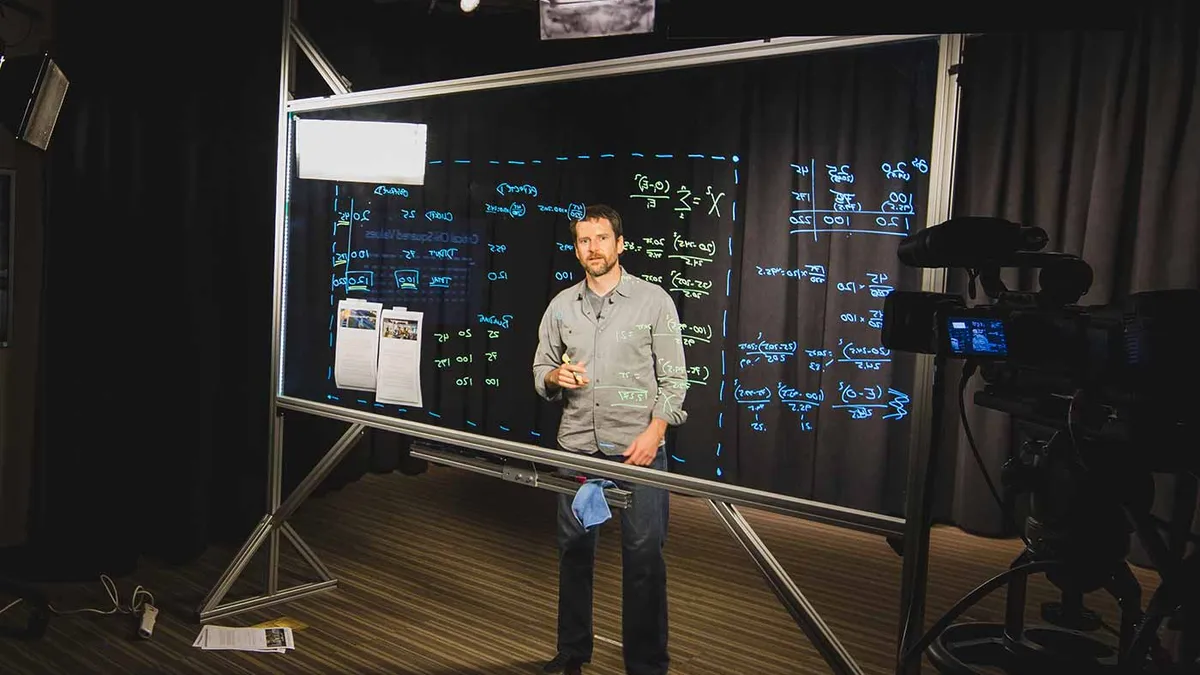It could take up to a year to go through the bureaucratic processes of creating a course and getting it approved for credit at a university like the University of California-San Diego. But Jeff Elman, director of the school’s Office for Online and Technology Enhanced Education, sees online learning opportunities with partners like Coursera and edX as important, flexible complements to what can be done on campus.
Qualcomm, a local telecommunications company, often reflects back that UC San Diego graduates are smart but they don’t have the cutting edge skills the company is looking for. Elman said he hears the same thing from companies in biotech, pharmaceutical, and other high tech industries. Part of the reason is that it doesn’t make sense to hire faculty, or support existing faculty, to create a course about, for example, the Ruby on Rails programming software that could very well be obsolete after being offered for just a few semesters.
“It’s also perhaps overkill,” Elman said. “Some of the skills can be taught in four weeks. We don’t need a 15-week course to do that.” Online, skills-based courses, then, can expand the opportunities available to UCSD students, better preparing them for the jobs available to them at graduation.
And they can help the school reach those who aren’t even enrolled.
The University of California system’s 10 schools do not have the capacity to serve the state’s almost 500,000 high school seniors that graduate each year. Online courses through Coursera and edX, while not for credit, have the potential to unlock high-quality educational content for many more students than UCSD otherwise reaches.
Coursera’s new Global Skills Initiative fulfills this dual role of being able to prepare students with the most cutting edge skills and also reach outside of the existing UCSD community. The Global Skills Initiative partners higher education institutions with companies to co-produce new course series that prepare prospective students for in-demand jobs. UCSD faculty teams have spent much of their summers immersed in course development, working with industry partners from Qualcomm and Splunk to create specializations on the Internet of things and big data, respectively.
Elman said the collaboration has given faculty members valuable input and guidance that provides a secondary benefit of the initiative.
“We get to hear from employers about the skills and knowledge they’re looking for,” Elman said. “That’s very important feedback.”
Outside of the GSI, UC-San Diego has also partnered with Google to create a Coursera course in software development and boasts one of the largest massive open online courses ever offered, "Learning How to Learn."
Elman, a professor of cognitive science, has studied machine learning, following the rise in online education closely. He sees the challenge for administrators in broadening a university’s reach through MOOCs as one of supporting faculty and encouraging them to embrace new pedagogical approaches made possible through the platform.
“It’s very easy to do online stuff poorly,” Elman said. “It’s much harder to do it well. But if you do it well, it’s extraordinarily successful.”
Would you like to see more education news like this in your inbox on a daily basis? Subscribe to our Education Dive email newsletter! You may also want to read Education Dive's look at how the University of Miami consolidated its IT operations across three campuses.













